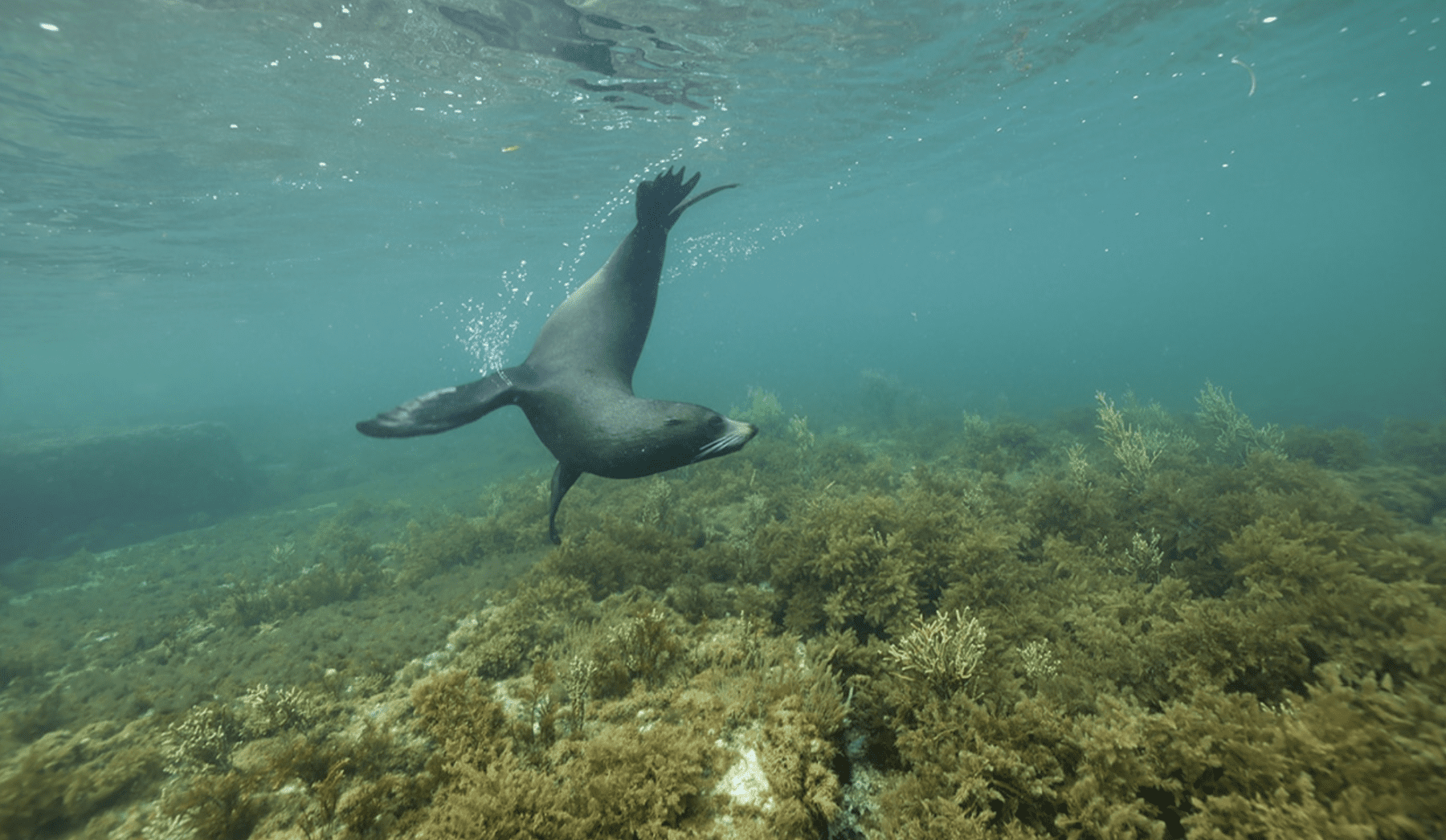There is a family of hawks that nests near our home. Their call to each other mixes with the songs and squawks of other birds and crows (crows aren’t birds; they’re demons, everyone knows this), which blend with the chittering of squirrels and the squeals of the neighborhood children at play.
I have often wondered whether all these creatures know each other’s language, or if it is just us humans who can’t interpret the calls of the wild. In the new series Super/Natural, I learned the answer to my pondering as well as lots more about the way creatures cooperate with each other, ways we’re apt to miss if we’re not listening or watching.
Super/Natural: What to Expect
Super/Natural is a nature documentary series in its first season, available on Disney+. Narrated by Benedict Cumberbatch and produced by James Cameron, this series uses the most state-of-the-art video techniques and technology to reveal what we know about the extraordinary sensibilities and lives of some of our world’s most fascinating plants and animals.
The first episode captures the strange partnerships that exist between species of animals, between plants and animals, and even between different species of plants. These partnerships showcase the ways prey defend themselves against predators through collaboration, mimicry, and astounding natural adaptations and abilities. They aren’t just practical, they’re beautiful.
Finding the Love: Faithifying Your Viewing
I just learned that a group of hawks is sometimes called a kettle, or a boil, or a cast. The terms are thought to arise from the way flocks of hawks “look like soup boiling in a kettle, because of the bowl-like shape of thermal currents utilized by these birds whilst soaring” (BirdFact.com). I’ve seen this soaring, but I never knew about the thermal currents they used to do it.
I never knew about the Northern Goshawk, one of the first creatures featured in Super/Natural, which is sometimes referred to as the “phantom of the forest.” And I never knew how the rest of the creatures of the forest could sense the hawk’s descent, could alert the other species of prey nearby in a way they all would understand, and could protect each other from the predator’s hunt.
Curiosity isn’t listed specifically as a virtue in Scripture, but again and again, the psalmists ask God to show us his wonders. “The whole earth is filled with awe at your wonders; where morning dawns, where evening fades, you call forth songs of joy” writes the psalmist in Psalm 65:8, and in Psalm 107:24, “They saw the works of the Lord, his wonderful deeds in the deep,” and in Psalm 139:14, “I praise you because I am fearfully and wonderfully made; your works are wonderful, I know that full well.”
In a worldview that puts Christ at the center, supreme over all things, there’s no component of creation that can’t leave us breathless with wonder and awe at God’s magnificence, at his attention to detail, at the glorious ways the whole universe is held together, somehow. He is constantly revealing his nature through nature, if we only have eyes to see, if we only have eyes to hear.
I understand, though, why curiosity itself isn’t listed among the fruits of the Spirit. This obsession with knowing things isn’t a destination, it’s a pathway to some other end. The pursuit of knowledge for the sake of knowledge is meaningless, says the Teacher in Ecclesiastes, and it leads to cynicism and despair. “I have seen all the things that are done under the sun; all of them are meaningless, a chasing after the wind” (Ecclesiastes 1:14 NIV). If the acquisition of more information doesn’t lead us into wonder, awe, humility, and the resting grace of a mysterious and wonderful God, what is the point?
Jesus the Christ, the incarnate Lord, demonstrated in his life and ministry the purpose behind all of the toil of our lives: to love God, and to love others. This, too, is modeled in the creation he made. The whole created world is out there looking after one another, preparing the way for the next generation of ants, elephants, owls, and trees to survive and thrive within a complex web of reliance and resilience. And isn’t love the driving force underneath it all, spurring creation forward to wholeness, everything made new?
If you’re longing to be surprised and inspired by the created world again, turn to Super/Natural, and then go. Sit in the world. Listen to the way everything is relying on everything else, talking to each other, calling to one another, leaning on each other. Watch creation respond to the wind, respond to the rain, respond to the predator, and respond to the prey. Watch creation manifest the love of God, and then step into that manifestation. Take your place in creation and love it, and everything, the way he first loved us.





 Copyright
2024
Root and Vine
Copyright
2024
Root and Vine